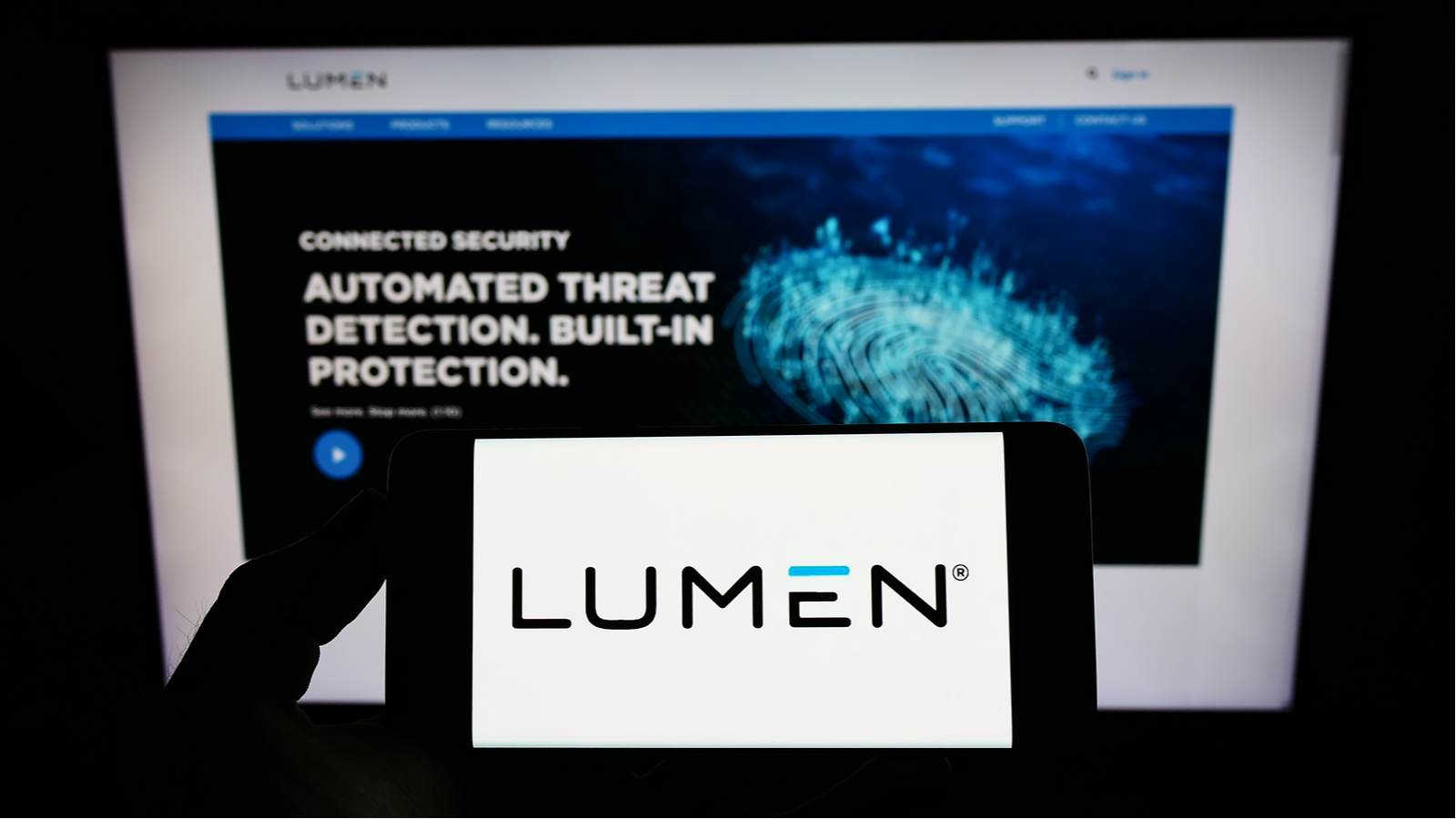- Lumen is the old US West, but highlighting fiber and hosting assets.
- Lumen uses depreciation to afford an enormous dividend.
- That dividend was once much bigger, which is what makes LUMN stock so cheap.
Lumen Technologies (NASDAQ:LUMN) stock, previously known as CenturyLink, was the US West of the last century.
The stock looks cheaper than AT&T (NYSE:T) before it agreed to spin out Warner Brothers Discovery (NASDAQ:WBDWV). It is cheap for the same reason, a dividend cut. We’re talking today about a yield of 8.77%, a price-to-earnings ratio of 6.03, and a market cap that is just 60% of sales.
Our Thomas Niel recently called Lumen “a solid deep value play.” You can look at it that way.
Of you can look at it like Wall Street does, as a yield trap.
| LUMN | Lumen Technologies | $11.51 |
What’s Lumen?
US West was the weakest of the Baby Bells, comprised of regional telephone companies. US West became weaker when it sold its cellular operations in 1997 for just $4.5 billion. This left it with an enormous wired network stretching from the upper Midwest to Washington state. The company was then sold to Qwest in 2000. There, it was run by Joseph Nacchio, who was convicted of insider trading in 2002. It was then bought by CenturyLink, a roll-up of small Baby Bell companies, in 2011. The group bought Savvis, a managed hosting company, the same year. It took its present name in 2020.
Lumen is run out of Monroe, Louisiana, a small city along I-20 that was once home to Delta Airlines (NYSE:DAL). It has always been operated with an eye toward income rather than growth. Revenues have been falling steadily since 2018, when they were $23.4 billion. They were $19.69 billion in 2021.
There was a rare sighting of net income in 2021 of $2 billion, or $1.91 per share. Usually, the company reports a loss, but it always has operating cash flow. This came to $6.5 billion last year. So, the dividend, which costs over $1 billion per year, seems affordable. Lumen’s secret is depreciation of $4 billion last year. Earnings before income taxes, depreciation and amortization (EBITDA), so beloved by takeover analysts, runs at over $8.6 billion per year.
Where’s Lumen Going?
Like an old dowager, Lumen is under constant renovation or reorganization. Like faded gentry, it also sells assets. Last year, it sold its Latin American assets to Stonepeak for $2.7 billion, 9 times EBITDA. The rest of the company isn’t worth 1.5 times EBITDA.
Lumen loves to highlight cutting-edge technology in its press releases. Here is one on blockchain. Here is one on global network services. Here is one on cybersecurity.
Underneath it all, however, Lumen quietly lives off its depreciation, writing down and writing off those old US West assets. Lumen now reports revenue based on customer size. Reading the press release, you would never know the company offers phone services at all. It does. It even bought what was left of Sprint’s network, then called Embarq, in 2009.
Most of the Embarq operations are now being sold to Apollo Capital Management in a $7.5 billion deal that closes later this year. What is left will be the old US West territory and some customers in Florida.
The Bottom Line on LUMN Stock
Lumen is playing the hand it was dealt. Its days as a growth company ended a quarter-century ago, when those cellular operations were sold to AirTouch. AirTouch eventually sold to Vodafone (NASDAQ:VOD), which sold to Verizon Communications (NYSE:VZ).
The choice of wired over wireless services doomed the company, whatever it came to be called. But investors have done well through depreciation and divestment. That dividend looks solid, but so did the old dividend of 54 cents per share before it was chopped in 2019.
When a dividend is the only reason to buy a stock and then that dividend is cut, it is going to take a long time to re-establish trust. That is why Lumen stock is so cheap.
On the date of publication, Dana Blankenhorn held no positions in companies mentioned in this story. The opinions expressed in this article are those of the writer, subject to the InvestorPlace.com Publishing Guidelines.
